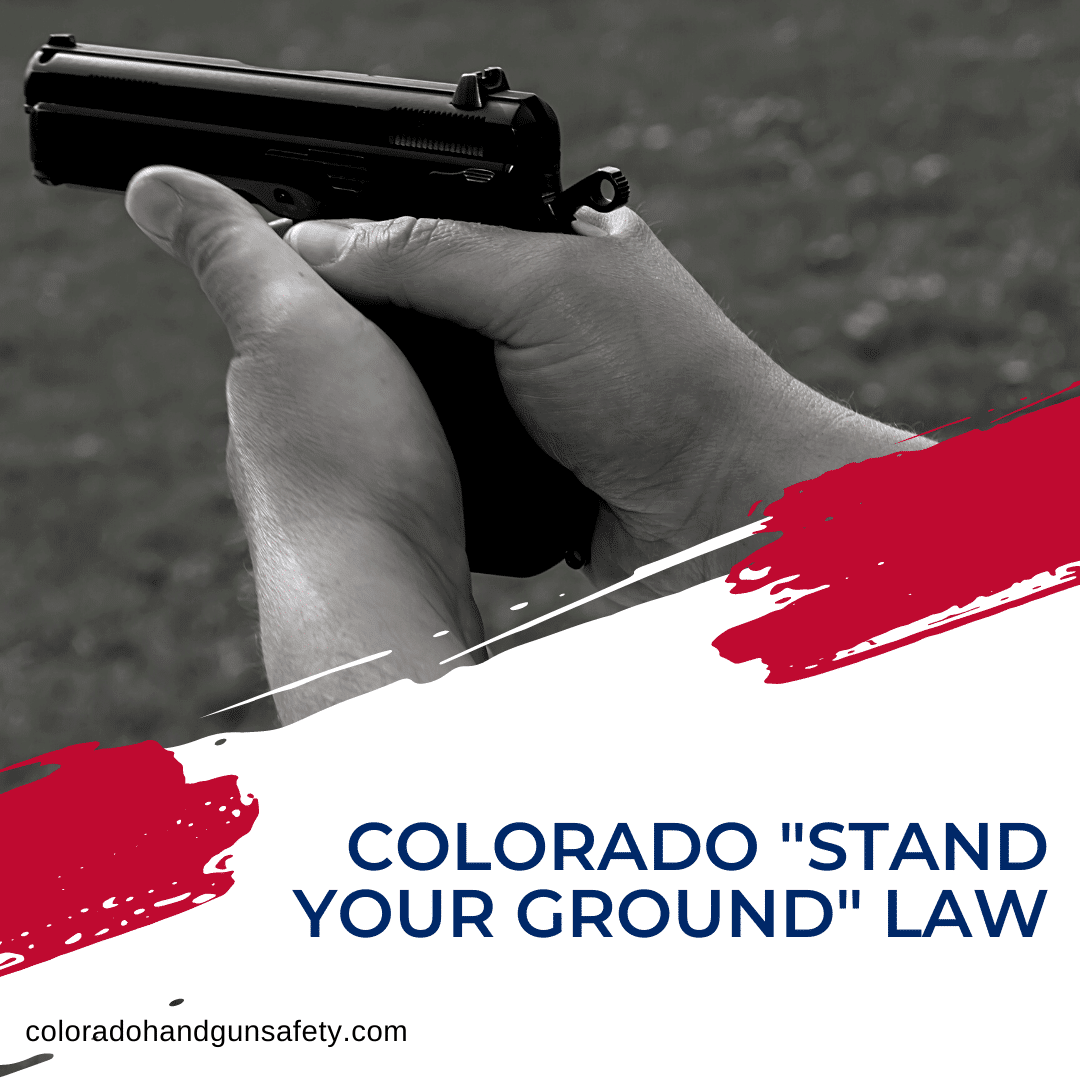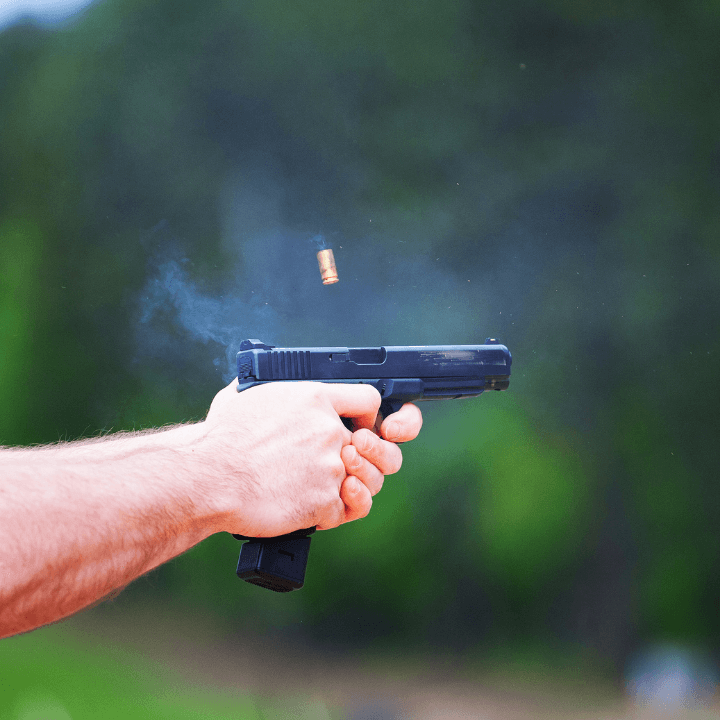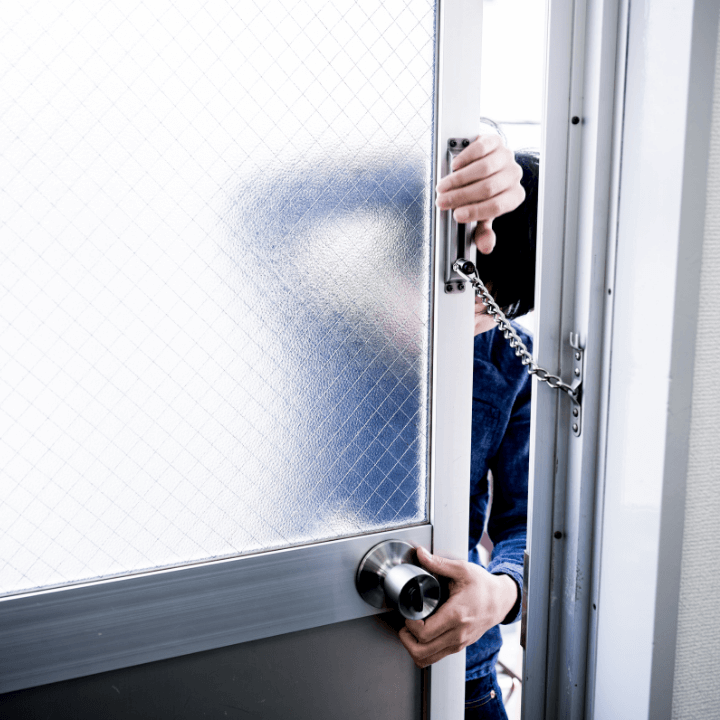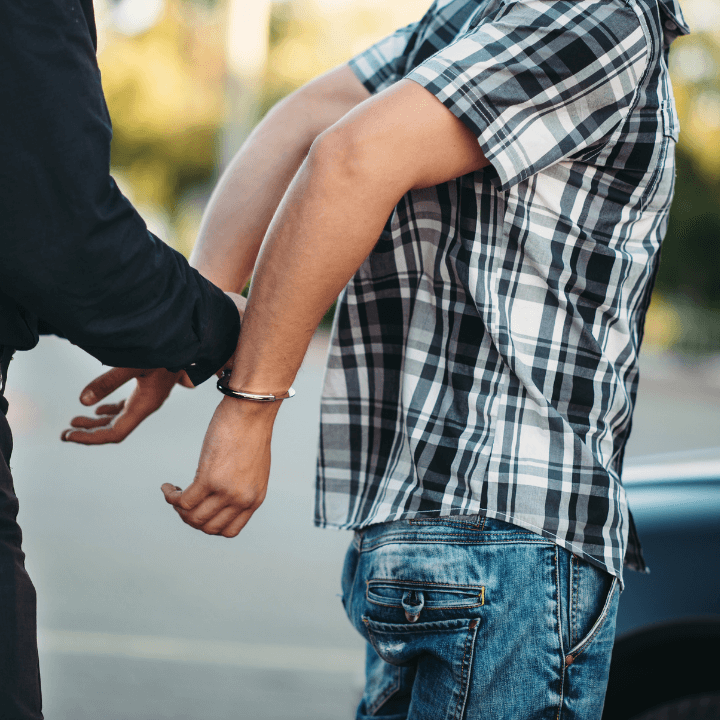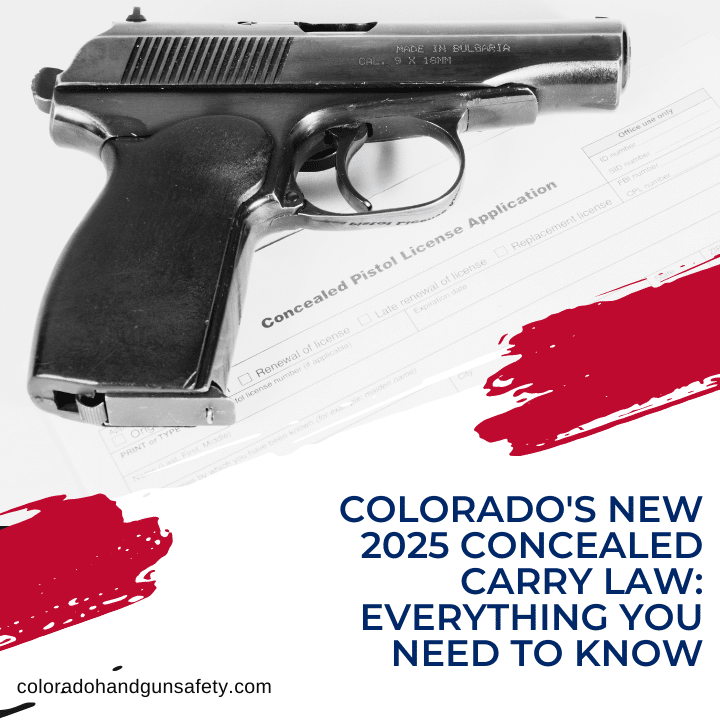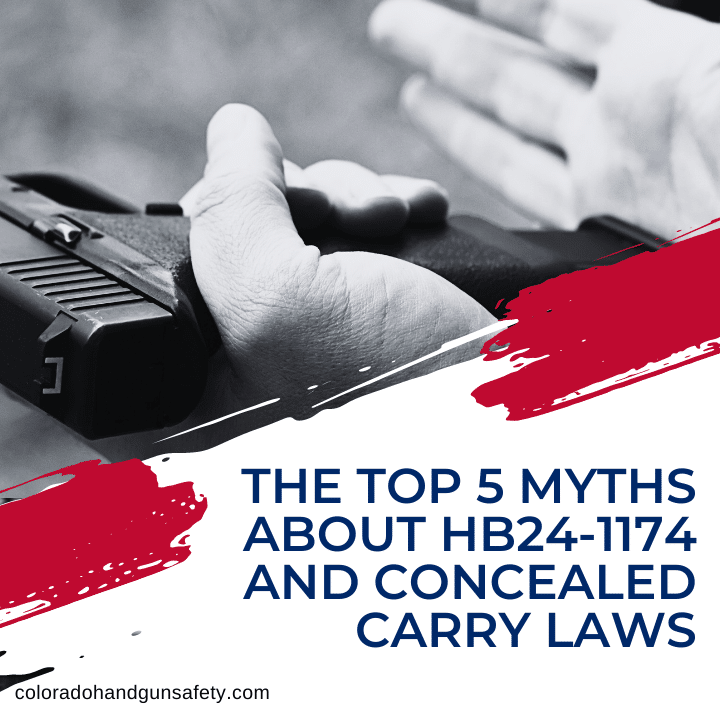As the premier handgun safety center on Colorado’s Front Range, Colorado Handgun Safety is committed to helping individuals understand handgun laws; their rights as handgun owners; and different self-defense laws; including the “Make My Day” law and “Stand Your Ground” laws.
If you are in a compromised situation where your safety becomes an issue, you have the right to protect yourself. However, it is important to know how to defend and protect yourself legally.
By understanding and following these various laws, you can learn what Colorado’s Supreme Court considers assault and what it considers self-defense. Throughout this blog, Colorado Handgun Safety is going to explore the “Stand Your Ground” law and whether or not Colorado is a state that practices the “Stand Your Ground” law.
When is self-defense justified in Colorado?
The self-defense laws in Colorado allow individuals to legally defend themselves or others with physical force. You can use physical force when you believe it will protect you from imminent danger and you use the degree of force that matches the type of situation you are in.
To defend yourself legally, you cannot be the aggressor. Self-defense is an extremely complicated defense law because multiple factors have to be considered to ensure you acted legally and your actions were justified.
In a criminal accusation, you have the option of using self-defense as a legal defense. This defense means you committed the crime, but that you did so to keep yourself or another person safe from imminent harm.
A successful self-defense case in Colorado involves proving three things:
- You reasonably believed you were about to suffer imminent and unlawful force.
- You reasonably believed that to protect yourself you had to use immediate force.
- You used a degree of force that you believed was essential to protecting yourself.
To defend yourself successfully, sometimes the use of deadly force is required. In Colorado, individuals usually have the right to stand their ground instead of running away. It is important to note that not every case of self-defense is justified. You cannot use self-defense as a legal defense if:
- You were the aggressor.
- You used deadly force to protect your dwelling but not yourself. You can only use deadly force to protect your home if you are trying to prevent arson.
How much force can you use?
As a Colorado resident, you have the right to use as much force as you believe is necessary to protect yourself. Usually, this means using the same amount of force that you are being threatened with, but every situation is unique.
For example, if someone punches you and you react by shooting them, you probably used an excessive amount of force and are not eligible for a self-defense argument. The punch probably did not cause you serious bodily harm, therefore, you were unjustified in using a gun. To use the argument that you were defending yourself in this situation, you would need to use an amount of force that was equal or less to the force of you being punched.
When is deadly force available?
In certain situations, the use of deadly force is necessary to successfully protect yourself. To use deadly force legally, you must believe the following:
- You were about to be killed or sustain serious bodily injuries.
- The Colorado criminal was committing a burglary and was going to use physical force against the occupant.
- The assailant was committing a kidnapping, robbery, sexual assault, or felony assault.
Your right to use force as self-defense, including deadly force, is at its peak if you are at home. This is because of Colorado’s “Make My Day” law. If you are only defending your property but not yourself, then your right to use deadly force in defense is not as strong.
“Stand Your Ground” Law
Colorado’s “Stand Your Ground” law means you do not have to retreat before using physical force to defend yourself. It allows you to use reasonable and appropriate force. Unlike the “Make My Day” law, the “Stand Your Ground” law also applies outside of your home.
For example, if you are on the highway and another driver is purposefully trying to run you over, you have the right to use your handgun without attempting to first get out of the driver’s way.
What is a reasonable belief?
To prove you were justified in using physical force as self-defense, you must prove that you reasonably believed the following:
- You were facing imminent harm.
- To successfully defend yourself, the use of force was necessary.
- You used the amount of force that was necessary to prevent bodily harm, a severe injury, or death.
Reasonable belief differs from subjective belief in two ways:
- A subjective belief is something that only you need to have.
- A reasonable belief means that any person would have the same belief if they were in your situation.
For example, let’s say you were at a party and suddenly someone hit you in the back of the head and you heard a loud bang as you were pushed out of the front door. In response, you pulled out your handgun and fired at the closed door. In this situation, there are no reasonable grounds that you had to act in self-defense.
What if you started or provoked the fight?
If you were the one who initiated the fight, you can only claim self-defense if:
- You ended up retreating from the altercation.
- You effectively communicated your intent to retreat from the altercation.
- The other person continues to attack you after you expressed your desire to withdraw.
If the above occurs, that means you transitioned from the initial aggressor into the victim. In this situation, the use of physical force would be in self-defense.
However, if you provoked a fight then you can’t use self-defense as an option. This has been put into place to prevent people from starting a fight and then using the self-defense statute as an excuse so they can say they were the victim.
What If You Agreed To Fight?
If you agreed to take part in a fight, then you cannot say that it was self-defense.
For example, if someone challenged you to a fight and you agreed to partake, then by law, you cannot say your actions were in self-defense.
Do You Have Self-Defense Rights To Defend Your Property In Colorado?
In Colorado, it is legal for an occupant of a dwelling to use force because it is considered self-defense. However, you may only use force that is reasonable and appropriate to prevent certain crimes. This includes crimes such as:
- Unlawful trespassing and unlawful entry.
- Theft.
- Criminal mischief.
- Criminal tampering.
Usually, you are not legally allowed to use physical deadly force if you are only defending your property. If you need to defend your dwelling or another person’s dwelling, you should use a lesser degree of force.
The one exception to this is that you can use deadly force legally to defend your property, or dwelling, if you are trying to prevent a person from committing arson.
When can you use deadly force to defend another person?
Defending another person is similar to self-defense. If you think your intervention is necessary to prevent a person from sustaining great bodily harm or death, then you can claim the defense of others. This means that if the person was in a position to claim self-defense, then you are probably in the position to claim the defense of others.
Usually, if you find yourself in a situation where you are trying to defend another person from imminent danger, you probably have little knowledge of what crime is actually happening. The law recognizes this and acknowledges that a person may act because of how something seems to be, rather than how it is.
What is Colorado’s “Make my Day” Law?
Colorado’s “Make My Day” law is also known as the “Force Against Intruders” statute. While some people think that Colorado’s “Make My Day” law is the same as the “Stand Your Ground” law, it is important to note that these are two different laws.
This self-defense statute allows an occupant of a dwelling in Colorado to use deadly force against an intruder if he or she reasonably believes the intruder intends to commit a crime or use physical force to hurt the occupants. In Colorado, the occupants do not have to retreat before using force and are legally allowed to “stand their ground”, even if there is a way to escape.
In Colorado, the “Make My Day” law can only apply if an intruder illegally entered a home. This does not mean they have to break a window or pick the lock to the front door. If an intruder snuck into a home by way of an unlocked side door, it would still be considered unlawful entry because they were not an invited guest.
Another requirement of the “Make My Day” law in Colorado is that the intruder has to be inside of your dwelling. You do not have the right to use deadly physical force to kill a suspected intruder if they are outside, this includes if they are:
- On a porch, balcony, or terrace.
- On top of your home’s roof.
- In your backyard.
- In your apartment complex’s common area.
- In a hotel hallway outside of your room.
- Standing outside of your front door.
As you can see, Colorado’s “Make My Day” law gives residents inside their homes the strongest rights to the use of deadly force in self-defense. The “Make My Day” law applies to all types of dwellings, including houses, apartments, trailers, and motel rooms.
It is also important to note that it does not matter whether or not the occupant is the owner or renter of the dwelling. For example, if you are an Airbnb guest and there is an intruder inside the house you are renting, the “Make My Day” law still applies to you and you have the right to use deadly physical force.
Even if an intruder did not mean to cause any harm, the “Make My Day” law protects occupants from criminal and civil liability as long as they reasonably believed that the intruder intended to harm them, no matter how slight they believed the harm was going to be.
To What Crimes does Self-Defense Apply?
Self-defense is a legal defense. Self-defense is often used as a way to fight criminal charges of violent or aggressive crimes. If a court finds that you acted in self-defense, then you cannot be held responsible for your criminal actions.
Instances where self-defense may apply to a person include:
Second-Degree Murder
Second-degree murder means a person knowingly killed someone. It is less severe than first-degree murder, which involves premeditation. For someone to charge a person with second-degree murder, they must prove that the person was aware that their actions were practically certain to cause death.
If a person uses deadly force in self-defense, they can still be charged with second-degree murder. However, if they successfully prove that they used deadly force in self-defense, then they cannot be held liable for their actions.
First-Degree Assault
This is the act of intentionally and seriously hurting another person. This type of act usually involves the use of a deadly weapon, however, it does not result in a fatality.
If you cause serious bodily harm to someone, prosecutors could charge you with this. However, if your Colorado criminal defense team can successfully prove that you were acting in self-defense, then the court cannot hold you liable.
Second-Degree Assault
Another crime where self-defense can apply is second-degree assault. This involves intentionally hurting someone, but not causing serious bodily harm.
In these types of cases, self-defense is often a successful legal defense that Colorado criminal defense teams use. If your Colorado criminal defense team can prove that you only hurt someone because you were defending yourself or someone else, then you can’t be held liable.
Domestic Violence
In the state of Colorado, domestic violence worsens the penalties of other violent crimes. If you commit a crime, say assault, on someone that you are having an intimate relationship with, then you can be accused of domestic violence.
In domestic violence charges, self-defense is often used as a legal argument. Usually, alleged domestic violence cases involve both sides using physical force and fighting.
To prove you were defending yourself, you must show that you did not initiate the fight and your use of force was reasonable. If you prove this successfully, then you cannot be held liable.
Resisting Arrest
In Colorado, you cannot use a self-defense strategy against a charge of resisting arrest. Resisting arrest means you were using physical force or violence against an officer attempting to arrest you.
The arrest has to be made under the color of law. The acts of a state officer are considered an act under the color of law if the officer claims that he or she is conducting official duties.
Even if an arrest was made unlawfully, you cannot use the argument of self-defense. If you ever find yourself in this type of situation, you are supposed to follow the officer’s orders and express your concerns later.
You are only justified in using the self-defense law as a defense strategy against a case of resisting arrest if the officer was not acting under the color of law. For example, off-duty police officers and private security guards cannot act under the color of law. If you resist an arrest from an off-duty police officer or private security guard, you can argue that you were acting in self-defense.
Understand Colorado Law With Colorado Handgun Safety
As the top handgun safety center on Colorado’s Front Range, Colorado Handgun Safety understands the importance of making sure that Colorado residents understand their legal rights. Hopefully, this blog gave you more insight into your legal rights and helped answer the question, “Does Colorado have a “Stand Your Ground” law?” If you have any questions about “Stand Your Ground” laws in Colorado or are curious about a different Colorado law, make sure to contact our team of experts today!


